Chapter 7
"The Pacific ocean. The peaceful ocean. Was there ever a more misnamed part of the world?"
Captain Charles Stewart Parnell Musings on a Life of Service
Korea as a nation has a long history of being attacked and subjugated by it's neighbours. However in 1870 the country was being nurtured by a foreign land far away from its neighbours. Ireland. The Dublin government had come to the belief that by establishing Korea as a friendly nation it would have a secure operations base to operate from in the Western Pacific ocean. Mostly so that assets in Alaska and the Pacific in general could be guarded against the Russian Empire. This culminated in the Declaration of Korean Intent which was a declaration by the Dublin Government that Ireland would guarantee the independence of the nation of Korea against all aggressors, except of course for Britain or else the London government would have had a very dim view on the Irish situation. While such an action was applauded by the powers of Europe, there was one nation that was not happy to learn of this information. Thus the Empire of Japan declared war on Ireland on the 18th of January to discourage the Irish government from expanding it's interests in what the Japanese regarded as their sphere of influence.
This was to be the first conflict the British Commonwealth would fight in.
British Troops stationed in India were the first to land in Japan on February the 13th. They landed unopposed and began to occupy the territory of Sumpu to establish a beach head for further British operations. On March 12th a Royal Navy squadron of mostly obsolete ships was decimated by the Japanese Navy. While a large force prepared to throw the British back into the sea at Sumpu. The opening moves of the war did not bode well for the Commonwealth.
Banzai Tactics. 1870's Style
On March 22nd the first Irish Troops landed in Japan in the area of Satsuma. While Reinforcements were sailed into Sumpu as the British made a startling discovery. The Japanese empire had for years been boasting about the size of its modern military but most of its military was found to be nothing more then barely organised Irregular companies. This news caused military planners in London, Dublin and Ottawa to seriously redraw their plans. The redrawn plans showed the possibility of retribution from Japan was significantly smaller then first imagined. This was all the politicians in both Dublin and London needed and they began to pour their nations full fighting forces into Japan. A joint command was drawn up in that Britain would take care of the main Japanese Island while Ireland and Canada would handle the outlying islands. At the rate currently progressing it seemed likely that the war would be over before Christmas.
British Imperialism in Force. Your going to need more Banzai.
Meanwhile in Europe the Italian front was grinding into a bloody mess. For while Austria-Hungary was gaining ground it was having to pay a very heavy price for every inch. France was losing territory to Sardinia-Piedmont which succeeded in removing any visions of grandeur the French nation still had. Attempts by the Austrian government to get assistance from Britain remained unsuccessful but many in Vienna hoped, and in Rome feared, that this would change soon. Meanwhile Prussia watched the situation in France with great interest and in quiet Prussian military minds began to draw together plans for the invasion of France.
On July 30th the Irish Army met the first organised military response of the Japanese Empire. Unlike the forces that Britain had faced these were Regular troops and well trained. However they were injured and had suffered huge loses. The Irish began the battle of Hakata in high spirits and reinforced with artillery and cavalry. The Japanese began the battle of Hakata injured and lacking in supplies. Unsurprisingly the Irish won a swift victory. However the conflict on the Mainland was beginning to drag out. The Japanese were proving quite stubborn to move from their territory and bar landings on the Hokkaido Island to the North by the Irish and a landing in the Bonin Islands by the Canadians the mainland of Japan started to represent a quagmire with the conflict carrying on well into 1871 and showing no signs of stopping.
However in Italy the government of Two Sicilies finally capitulated to Austrian demands and lost much of Northern Italy to Austria, shattering all dreams of a United Italy. However the war in France was not over and the Southern German Federation was steam rolling across much of central France while Sardinia-Piedmont continued to assault from the South.
End of Italian Unification. Now all I need to do is prevent German unification.
Finally on March 25th 1872 Japan surrendered to the Commonwealth and signed the Treaty of Fukushima, named so as the sight of the last battle of the war, In it Japan seceded to become a satellite state of Britain and it lost territory to Ireland and Canada with Hyuga Amami and Okinawa to Ireland and the Bonin Islands to Canada.
Well this was unexpected.
Dublin exploded in celebration. The partying went on for a solid week and was only topped by the partying in Alaska due to it being granted full State status on the same day as the wars end. However while the people celebrated the military leaders of Ireland met in back-rooms to discuss one vital thing. Ireland would not have stood a chance in this war if it were not for Britain. It's navy would have been completely outclassed and it's army outnumbered. The military leadership, and sympathetic politicians, had realised it was time to rectify this matter and these informal meetings would be the beginning of an extension of the Irish military in both the Army and Navy.
However this celebration helped hide one fact. Ireland was becoming financially unstable. It's industry was haphazard and was in desperate need of an overhaul. There was no way Ireland could hope to ever fight another war unless it got it's budget settled out. Thus investment in Industry began to rise with the Shipyards in Belfast and Cork and the Steel Mills of Galway receiving attention.
This was also coupled with the news of the settlements of both Guinea and Iboland coming to fruition in Africa giving Ireland access to it's own coal mines. However a decision was reached that Ireland would curtail its colonial expansion until such a time as the economy fully recovered.
However apart from a small uprising in Okinawa and Hyuga Ireland until the year 1875 would be a quiet place.
########
So......
Yeah that just happened.
[1] The Japanese have declared war on in me before but on test play troughs it is usually not until the late 1880's early 1890's when they stand a better chance. This time around they went in early and well the conflict outlined above happened.
I apologise for the lateness of this update but technical difficulties have been plaguing me for a while. And then I went to a convention which guaranteed I got no work done.
Also is it wrong that I think it funny that of all the countries in the world Canada received part of Japan?
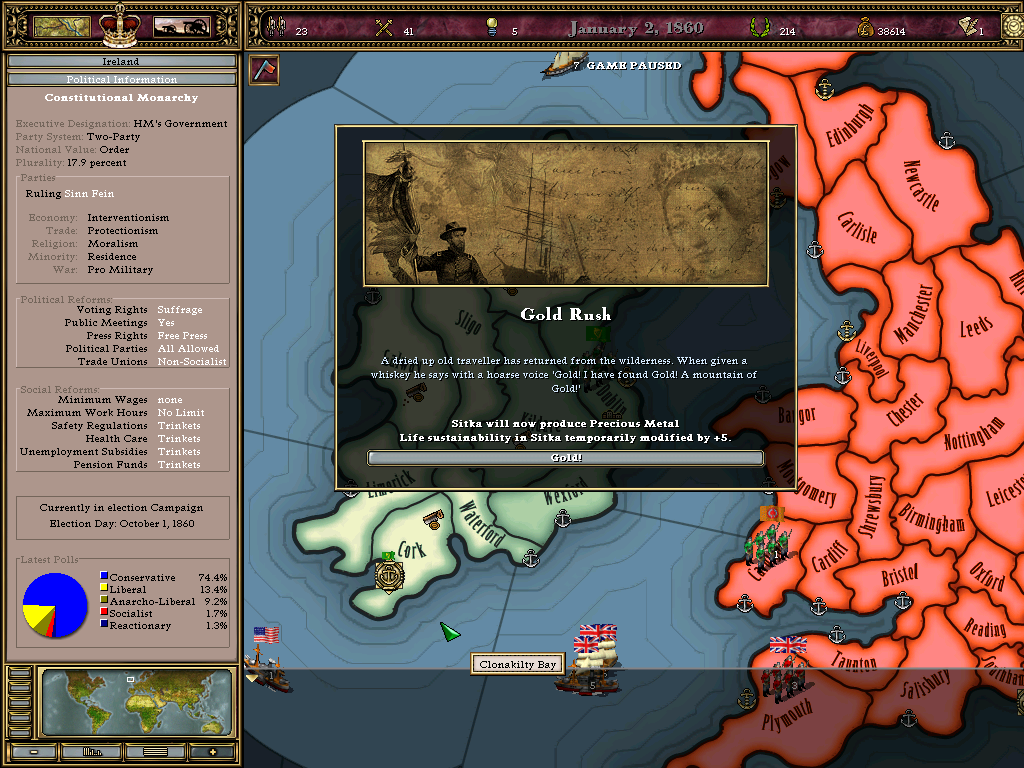
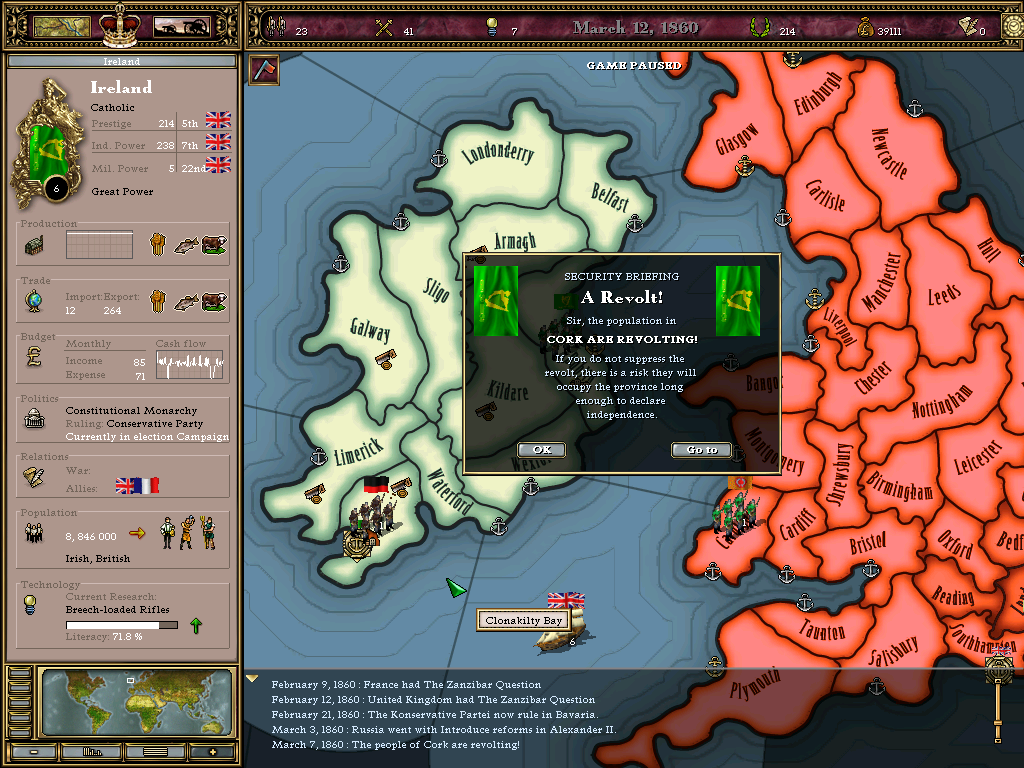
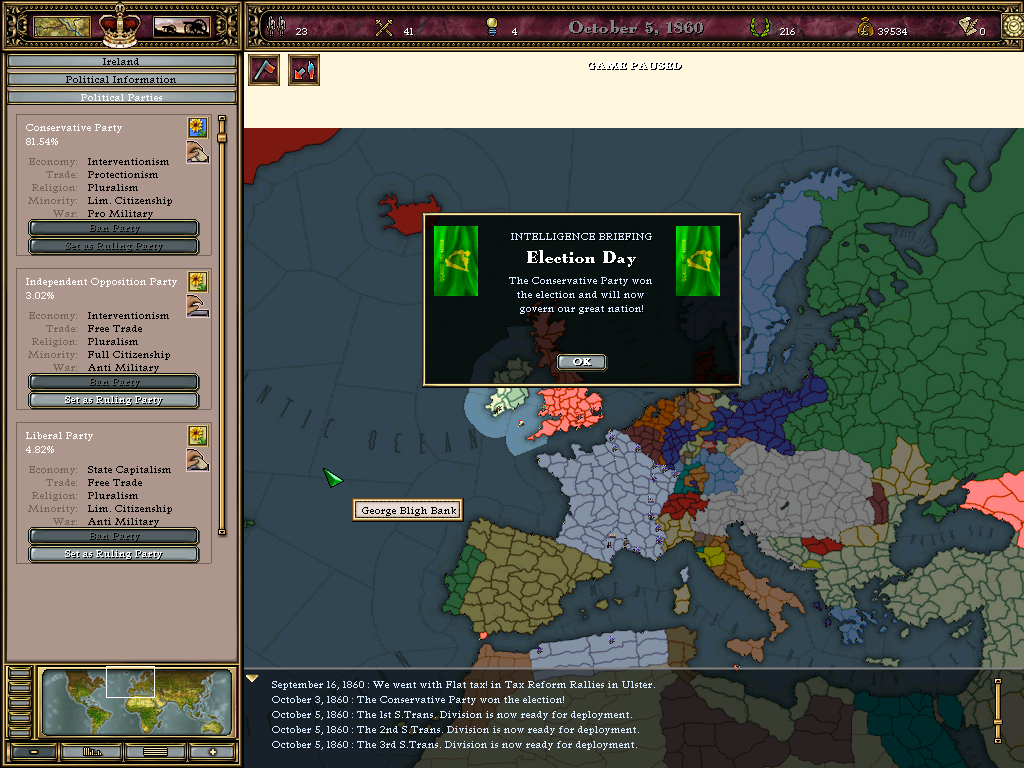
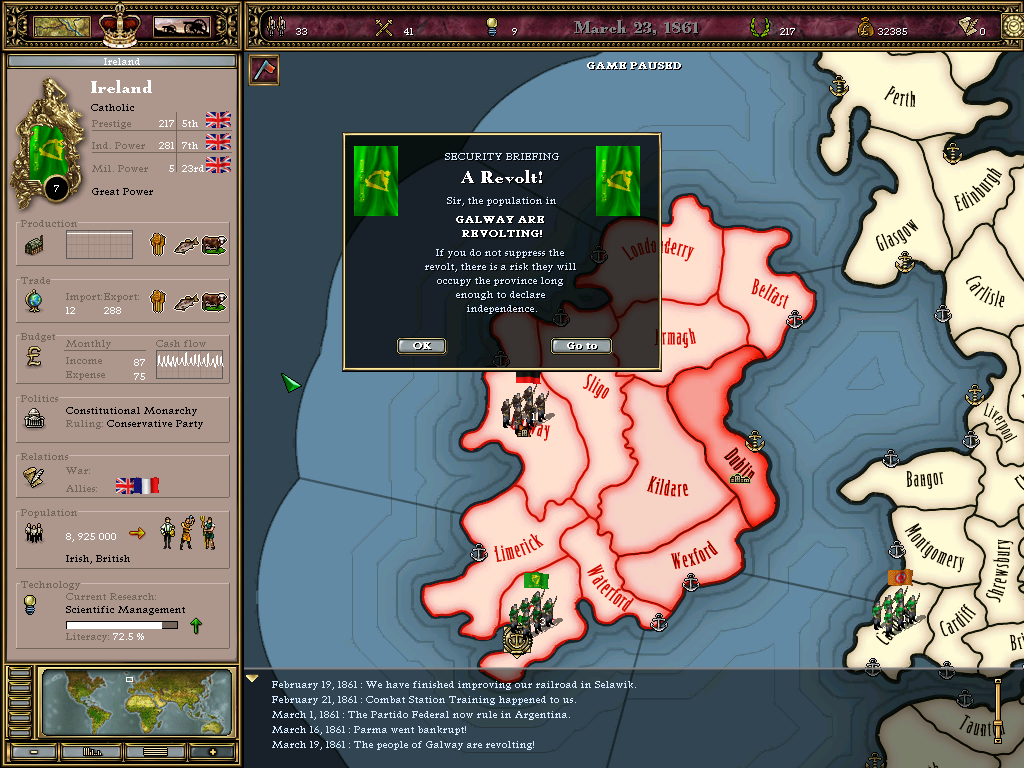
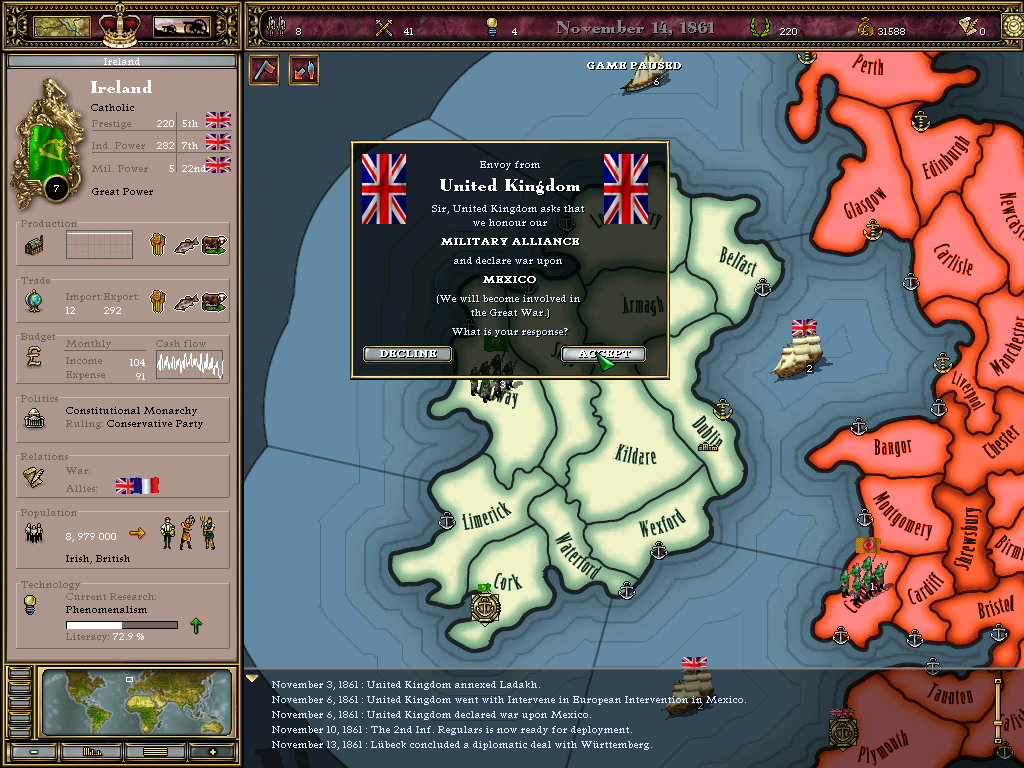
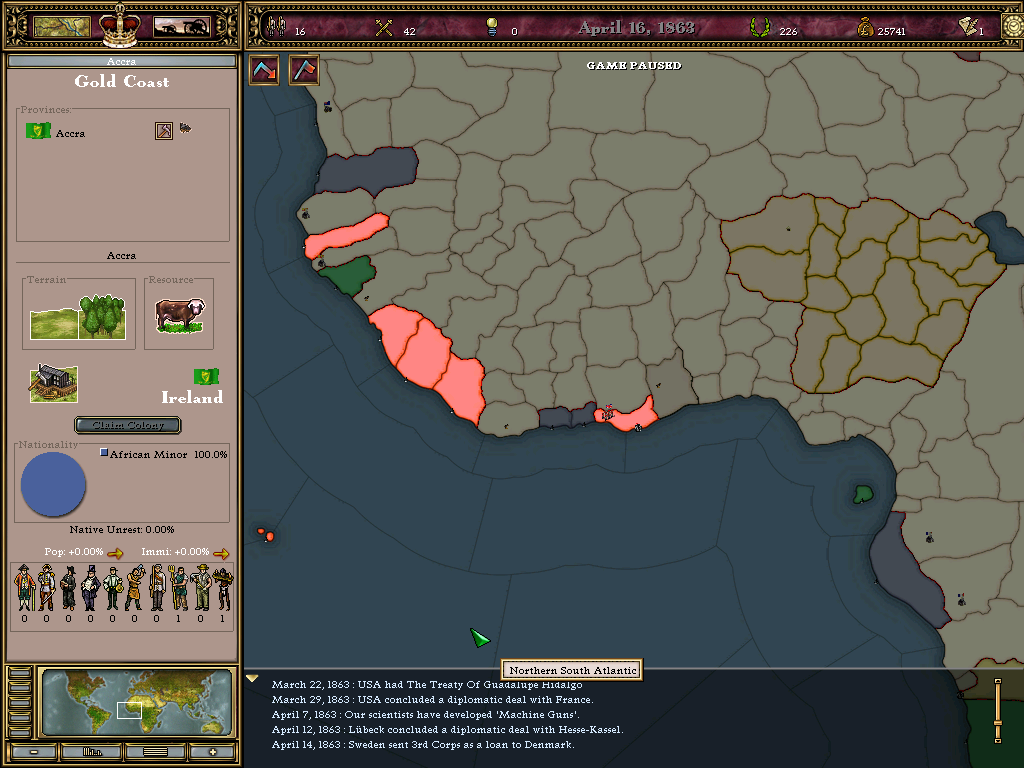
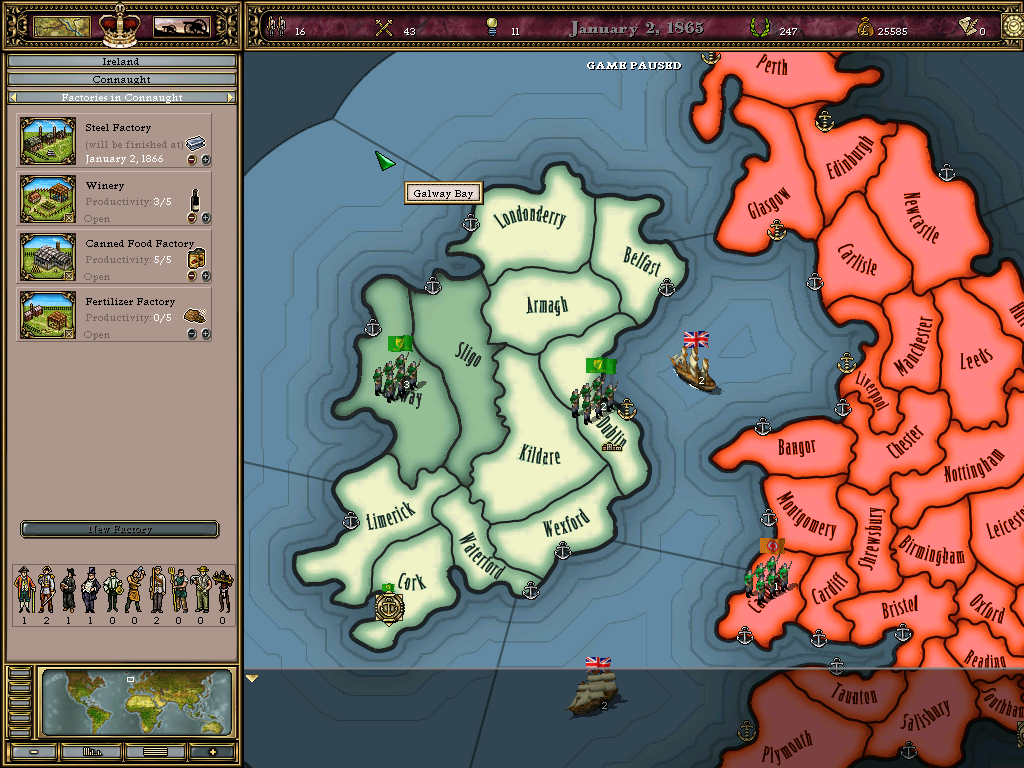
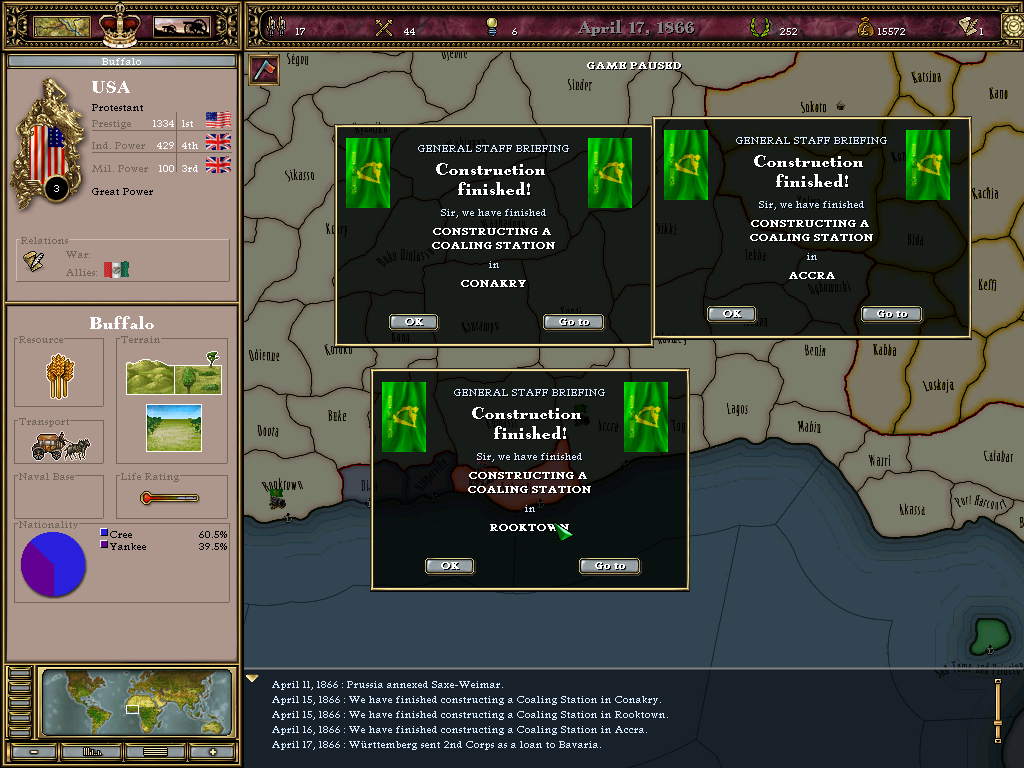
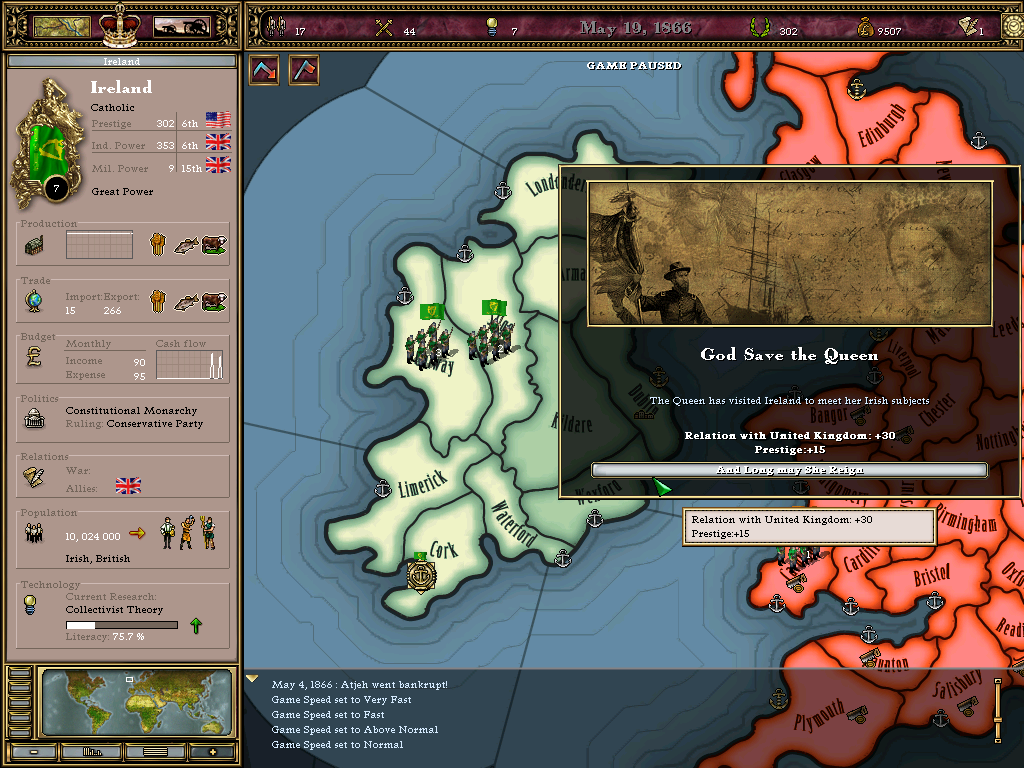
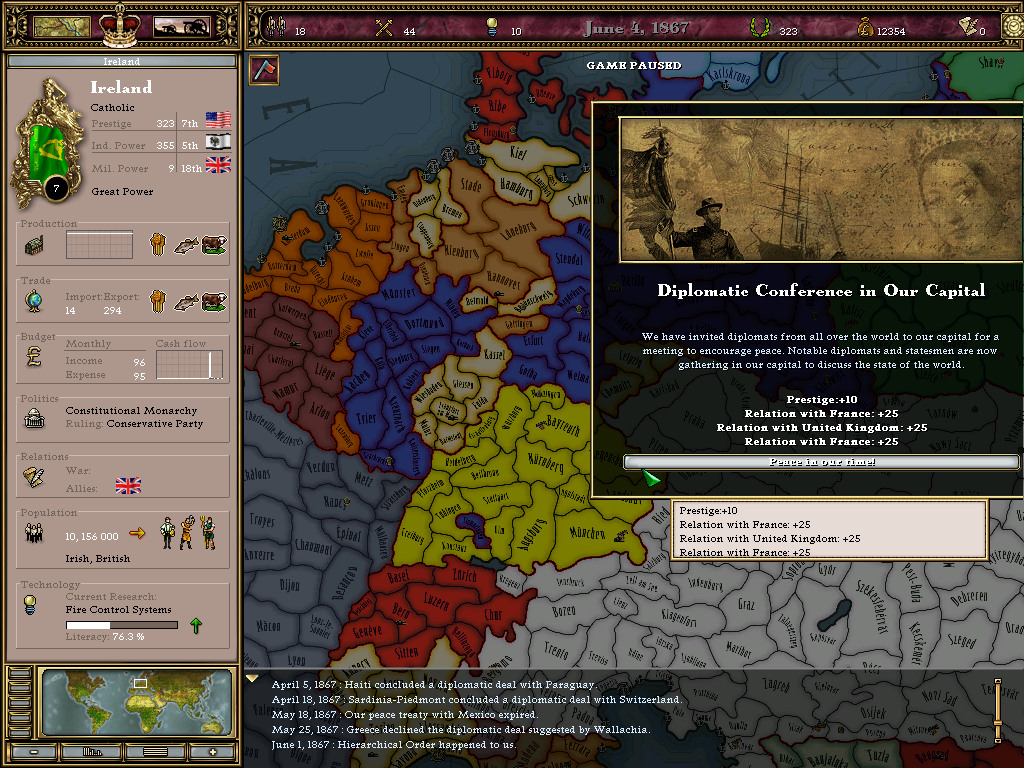
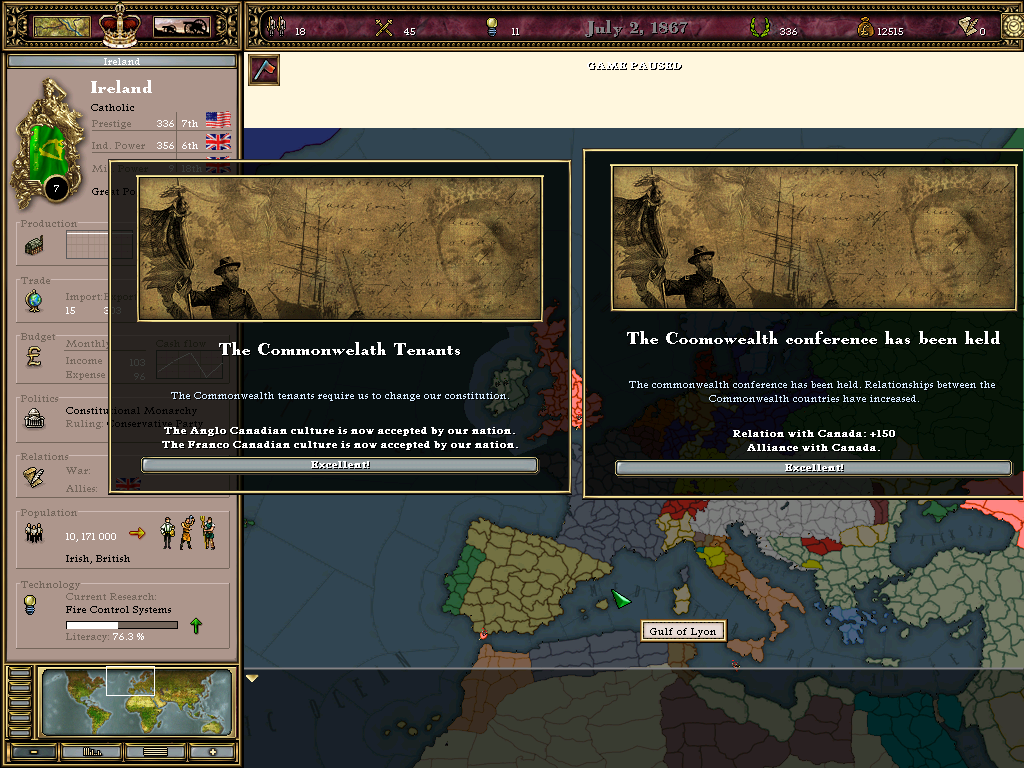
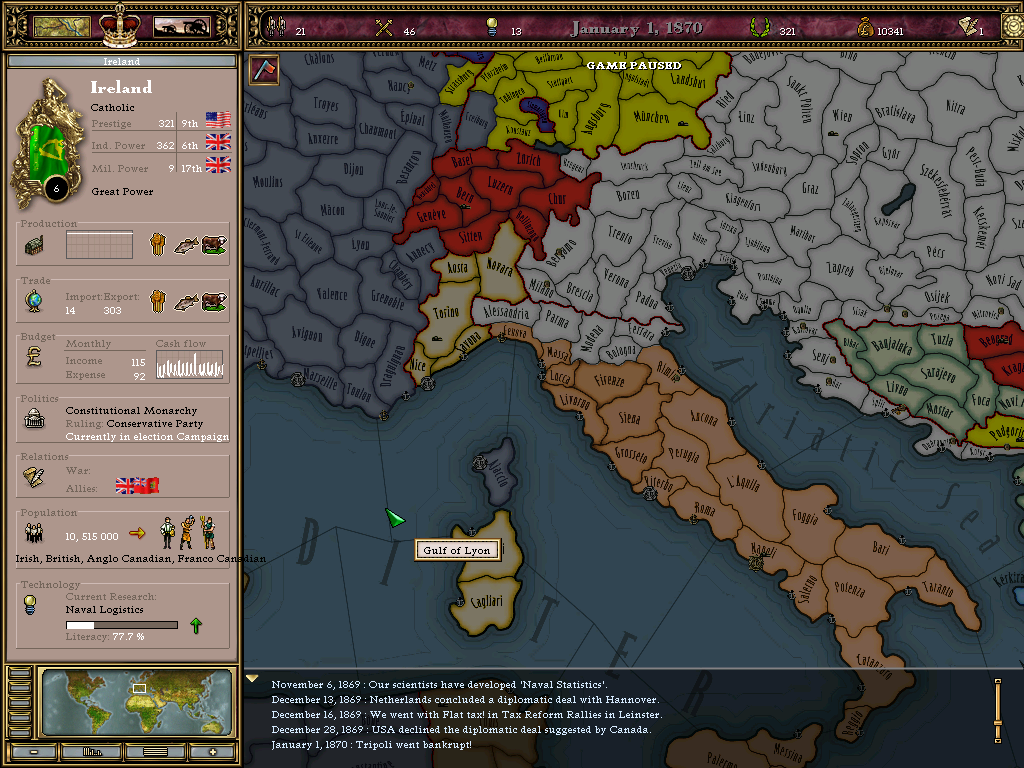
wouldn't you be able to count on the Royal Navy in case of war, though? I doubt any nation in the game could match Britain's sea power...
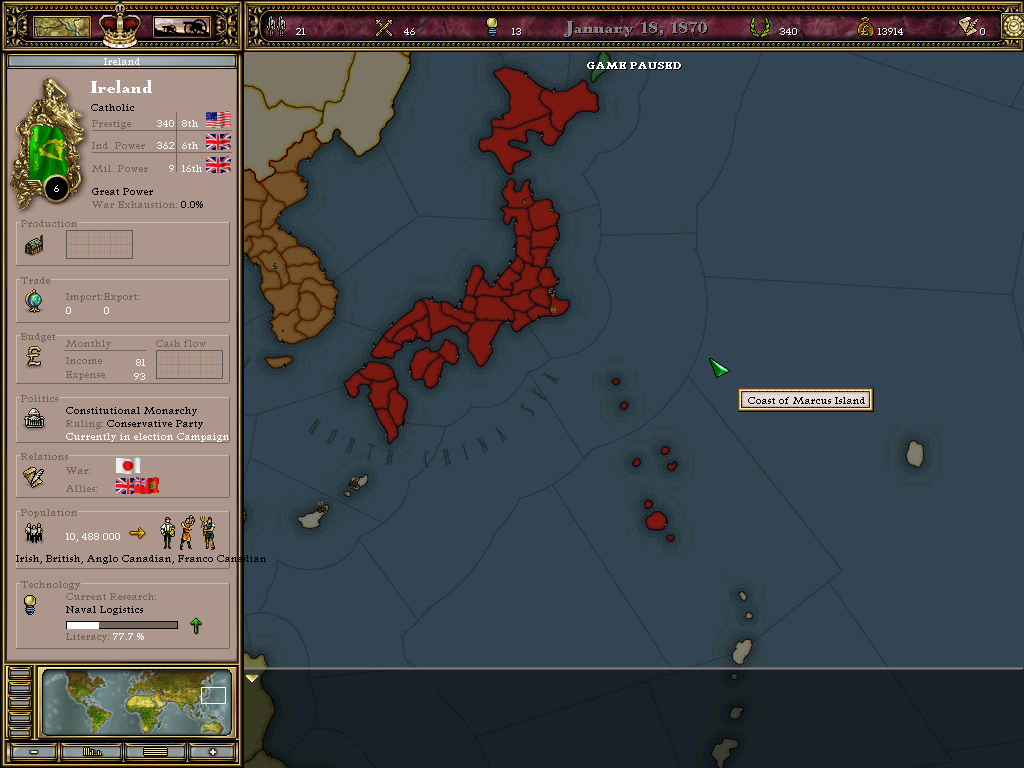
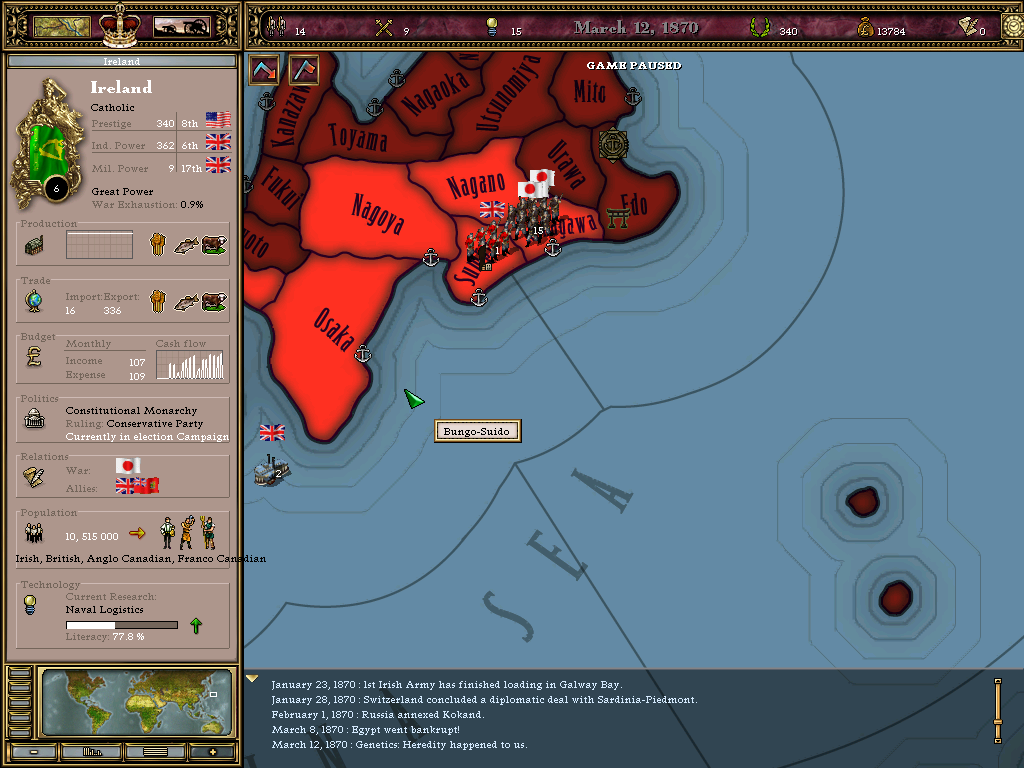
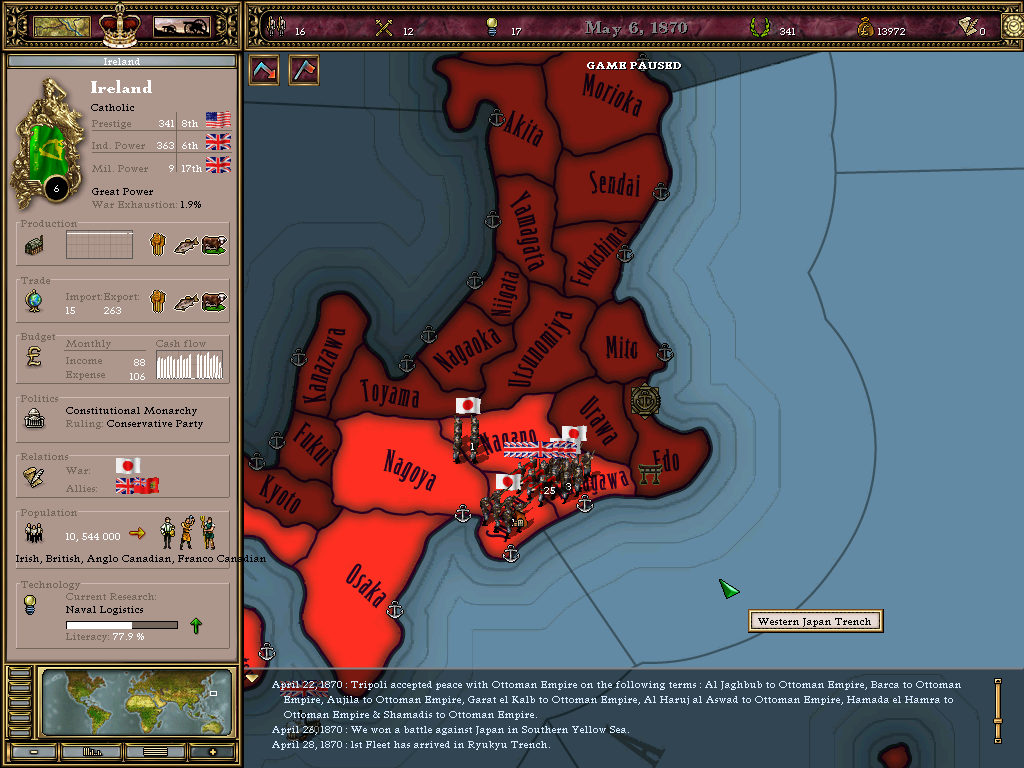
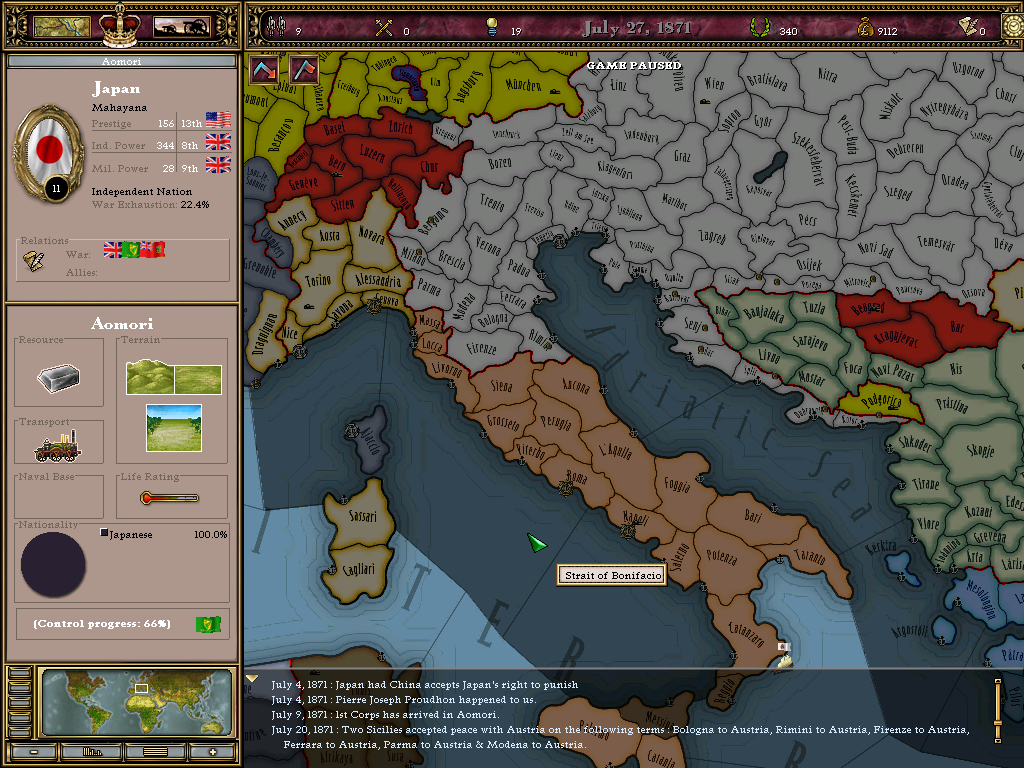
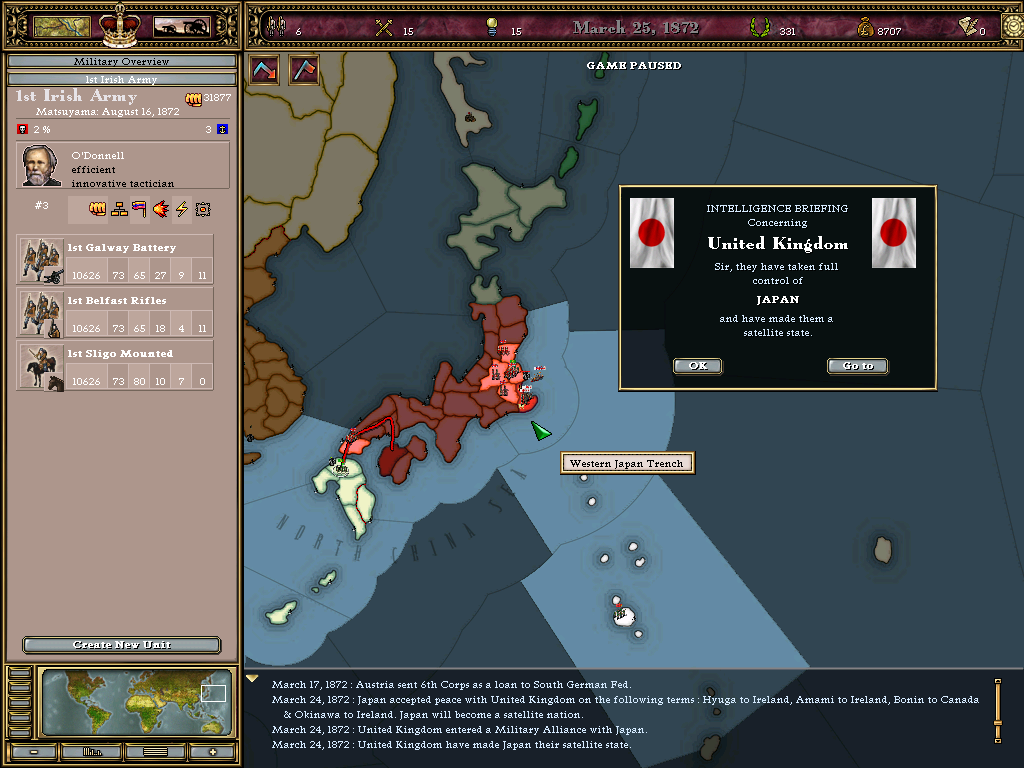
Still, a good end result.
